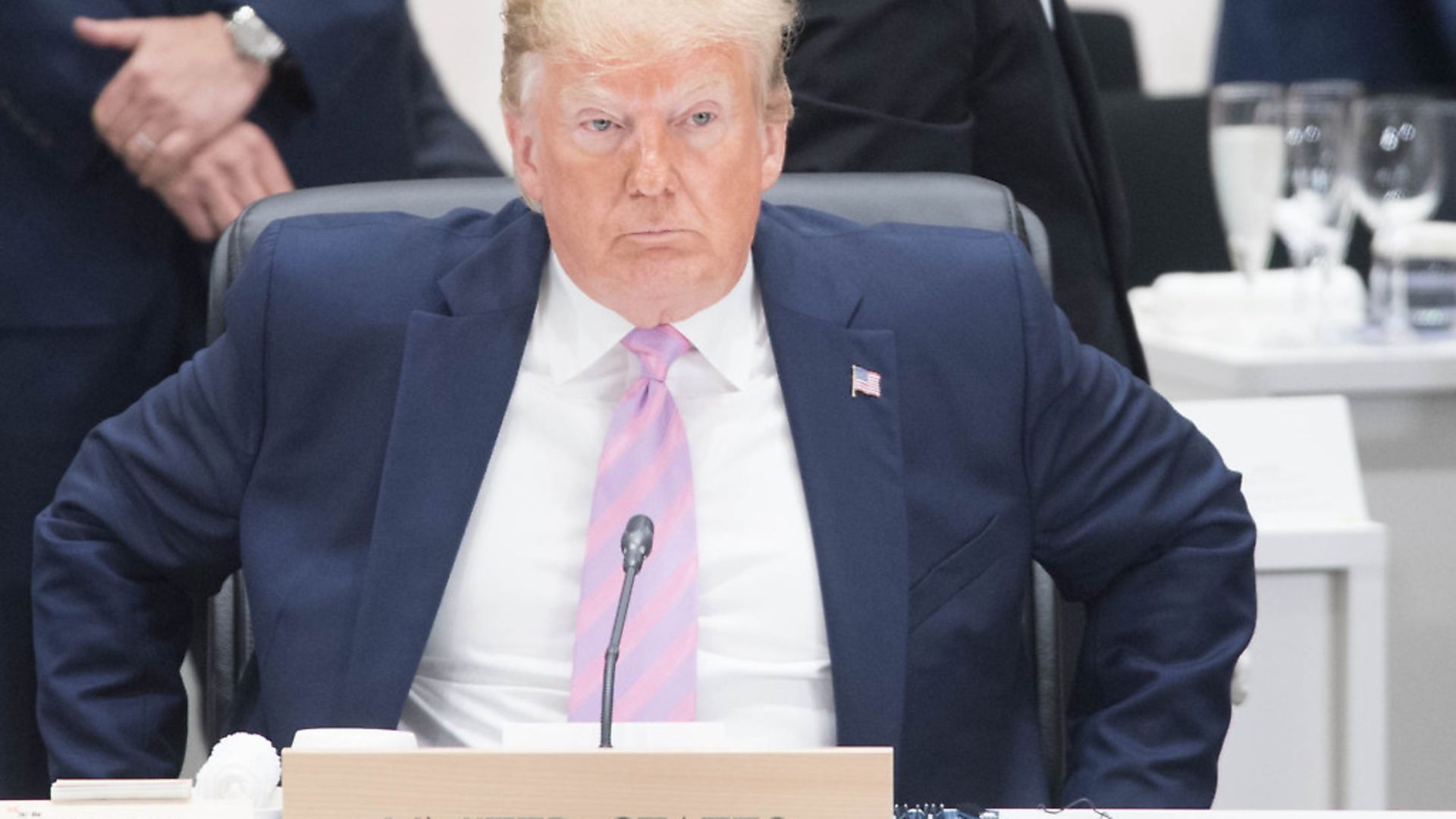
If Sir Kim Darroch had ever had any doubt about the accuracy of his comments the president’s reaction must have served as vindication.
Sometimes, nothing justifies an action so much as its own response.
So it has proven – at high stakes, in different ways – for two groups this week. The first is Sir Kim Darroch and his team at the UK’s embassy in the USA.
Darroch, one of the UK’s most senior and well-respected diplomats in one of the foreign service’s most high-profile jobs, was simply doing what the FCO pays him to do – giving his opinion on the government and functioning of his host country.
The problems started on Sunday, when Isabel Oakeshott – a journalist who, without evidence, accused the then-prime minister of performing a sex act with a pig – published a series of leaked diplomatic cables on Darroch.
His assessment was hardly revelatory, though few in the UK would dispute it. Darroch referred to Trump’s administration as “uniquely dysfunctional”, “inept” and “incompetent”. Perhaps most presciently, though, he referred to the current US president as “radiating insecurity”.
Donald Trump responded with his usual total absence of grace or fortitude, dealing with a sensitive political matter between the US and one of its closest allies – with whom it discusses military and intelligence cooperation, a potential future trade deal, the descending situation with Iran and more – by launching into an ill-tempered and often incoherent series of tweets.
“I do not know the Ambassador, but he is not liked or well thought of within the U.S,” the president wrote on Monday. “We will no longer deal with him.”
The man referred to by Trump as “not liked” or “well thought of” had, in the last few years alone, according to Politico’s Playbook newsletter, hosted, among others, Trump’s senior strategist Kellyanne Conway, billionaire Republican donor and casino magnate Sheldon Adelson, Trump’s commerce secretary Wilbur Ross, former chief of staff Reince Priebus, Trump’s immigration tsar Steven Mnuchin, and former defence advisor Seb Gorka.
But Trump could not restrict his – apparently inaccurate – online rant to insults at Darroch, including not only a promise not no longer deal with him, but also a string of criticisms towards May, the UK government, and its policies.
“I have been very critical about the way the U.K. and Prime Minister Theresa May handled Brexit. What a mess she and her representatives have created. I told her how it should be done, but she decided to go another way,” the president tweeted, apparently in reference to his own incoherent suggestion that May should “sue” the EU – not an option open to her.
He then proceeded to interfere in the internal politics of the UK – a diplomatic no-no also, but who’s still counting at this stage? – by saying it would be “good news” for the UK that they would get a new prime minister soon.
Such was the embarrassment of this first tweet that the UK government – via 10 Downing Street – had to put out a formal but firm statement noting that the UK government, not the USA, appointed its own ambassadors.
In usual circumstances, this would be accompanied by communications through less public channels noting the significant problems of publicly responding to leaked sensitive documents between two countries with the world’s closest and deepest shared intelligence relationship, among numerous other issues.
Needless to say, though, the formal, polite public response elicited yet another tirade from Trump. Darroch was now a “wacky Ambassador” – probably the first time he’s been referred to as ‘wacky’ – and a “very stupid guy” who should speak to May about the Brexit talks, in which as US ambassador he plays virtually no role.
Trump then called May’s handling of Brexit “a disaster!” before bizarrely concluding his second day of tweets in response to one leaked story by thanking himself for the USA’s current economic performance.
If Darroch had ever had any doubt about the accuracy of his own missives, watching the US president sink the UK and USA into something approaching a full diplomatic crisis over a few leaked words suggesting he was insecure must have served up a mote of vindication in an otherwise terrible week.
But Trump was not the only man in his administration so quickly brought down by his own actions. Trump’s secretary of Labour, Alex Acosta, was also bound in a crisis with no-one to blame but himself – but plenty of others to try and throw in the way.
For it was Acosta, as the district attorney of Miami, who made the controversial and widely-criticised plea deal with Jeffrey Epstein – without consulting his alleged victims – which saw the billionaire sex pest spend just 13 months in jail.
Epstein has now been re-arrested and he – and possibly his associates – will face a full, fresh trail on a much wider scale than ever before, with up to 45 years of jail if he is convicted. Acosta, too, will face endless public scrutiny for the ways he made the decision to end Epstein’s trial so quietly more than a decade ago. He has let others make the television appearances to speak up for him.
Trump and his ilk might be unable to respond to the criticism of those they dislike – but they cannot help but vindicate it.
Warning: Illegal string offset 'link_id' in /mnt/storage/stage/www/wp-includes/bookmark.php on line 357
Notice: Trying to get property 'link_id' of non-object in /mnt/storage/stage/www/wp-includes/bookmark.php on line 37







